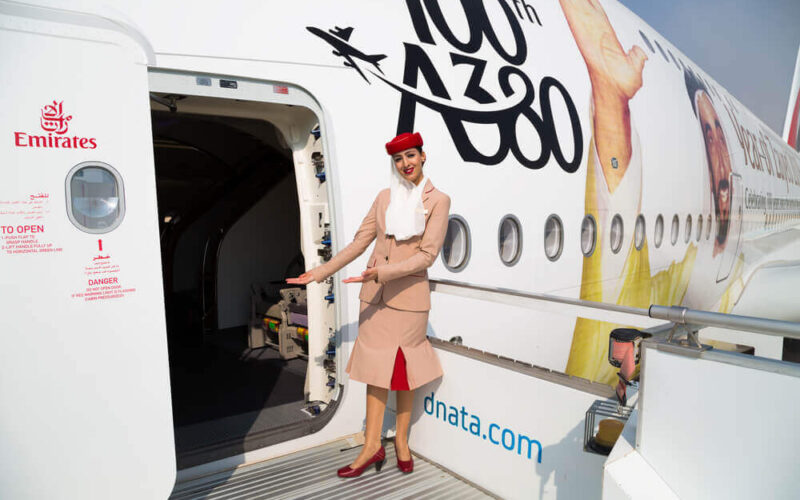Having recently warned that it would not take in any new Airbus and Boeing jets until plane makers and engine manufacturers get their act together, Emirates admitted the beginning of A380 phase out and announced the retirement of the last 777-300 in its fleet.
On September 6, 2019, the airline announced it had retired the last Boeing 777-300 from its fleet. However, this does not mean that you won’t see a triple seven in Emirates colours anymore ‒ on the contrary.
The aircraft in question, a 777-300, registration number A6-EMX, joined Emirates fleet in June 2003, where it served for 16 years, carrying out 14,961 flights and accumulating 61,375 flight hours in the process. The airliner embarked on the last flight to Queen Alia International Airport (AMM) in Jordan, after which it was withdrawn from use on on October 27, 2018.
The 777 is not disappearing from the airline’s operations, though. Emirates operates a fleet made up exclusively of wide-body aircraft, with the sole exception of one private jet. The airline operates two types of aircraft, the Airbus A380 and Boeing 777, and has the world’s largest fleets of both types, according to its own words.
Downsizing from three different versions of the triple seven, Emirates still operates 155 jets of the remaining 777-200LR and 777-300ER versions, and expects six more deliveries from Boeing for the latter aircraft type. In addition, it has an order for 150 aircraft of the newest triple seven version ‒ the 777X.
Yet there is one aircraft for which Emirates is better known ‒ the A380. A day before the last 777-300 retirement announcement, the airline’s CEO Tim Clark admitted that superjumbos are already being phased out as well. Clark said that two aircraft have already been retired, quoting upcoming “major” overhaul needs.
Emirates currently has a fleet of 112 A380s and some superjumbos are still to join the fleet within the next two years. In February 2019, the airline announced cutting the superjumbo order with Airbus by 39 aircraft, meaning that only 11 planes remain undelivered. In response, Airbus announced ceasing production of the airliner in 2021.
Simultaneously, in February 2019, Emirates also announced an order for 40 A330-900 and 30 A350-900 aircraft, to be delivered from 2021 and 2024 respectively. However, it appears that the deal has not yet been inked, as Airbus latest orderbook update (as of August 31, 2019), still lists the original superjumbos order size ‒ 162 aircraft in total ‒ with no A330s or A350s in sight.
Speaking with reporters on September 4, 2019, Clark expressed his weariness of reliability challenges with new aircraft and said that the airline would not take delivery of new Airbus and Boeing jets unless the plane makers and engine manufacturers – Rolls-Royce, General Electric – get their act together.
“I’m not saying we don’t like the A330. I’m not saying we won’t like the 787-9 and -10. I’m not saying we don’t like the A350. These are hugely potent aircraft that eventually will get all their operations sorted out. They are outstanding designs. Unfortunately, they’re not being put together as well as they should be,” Clark told reporters in London.

